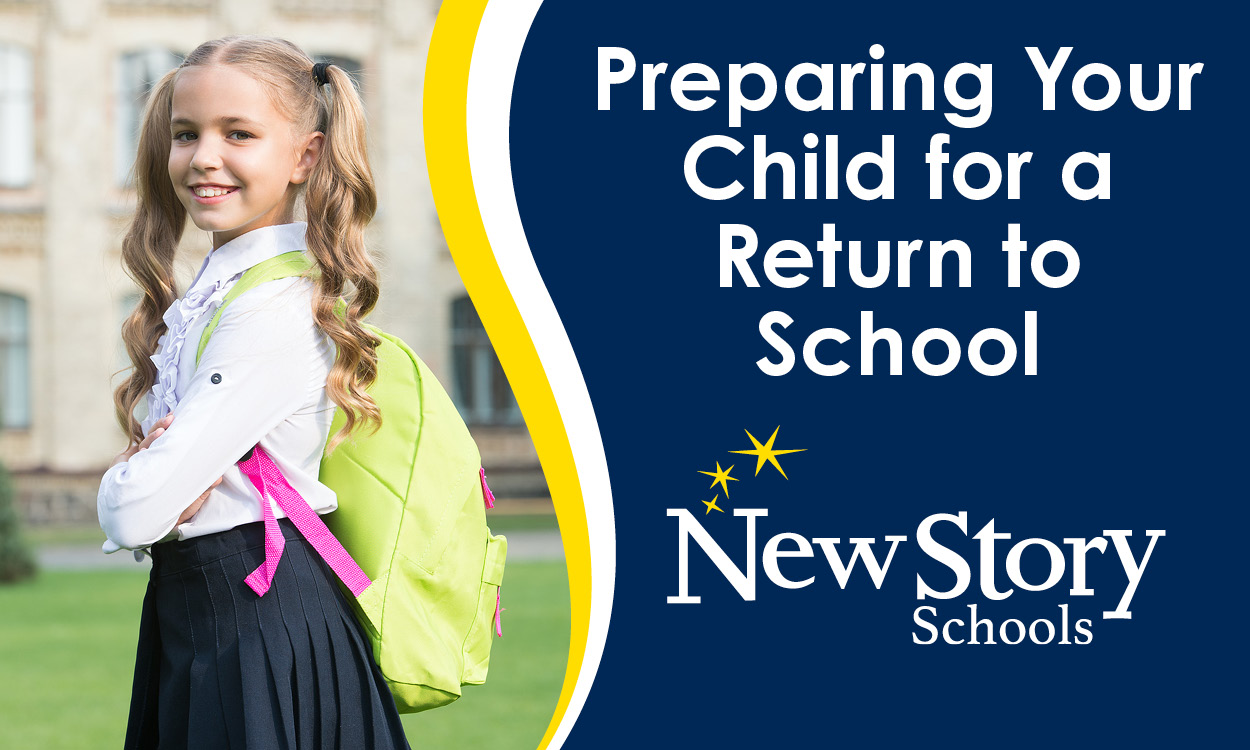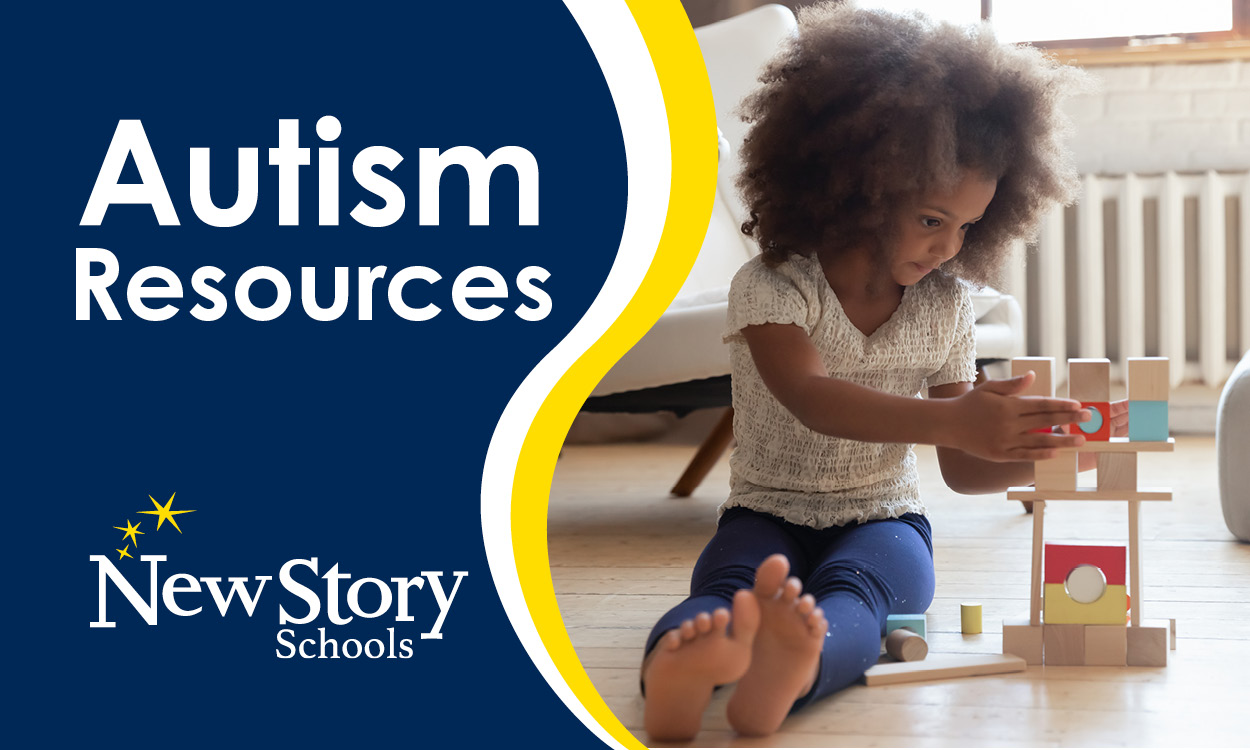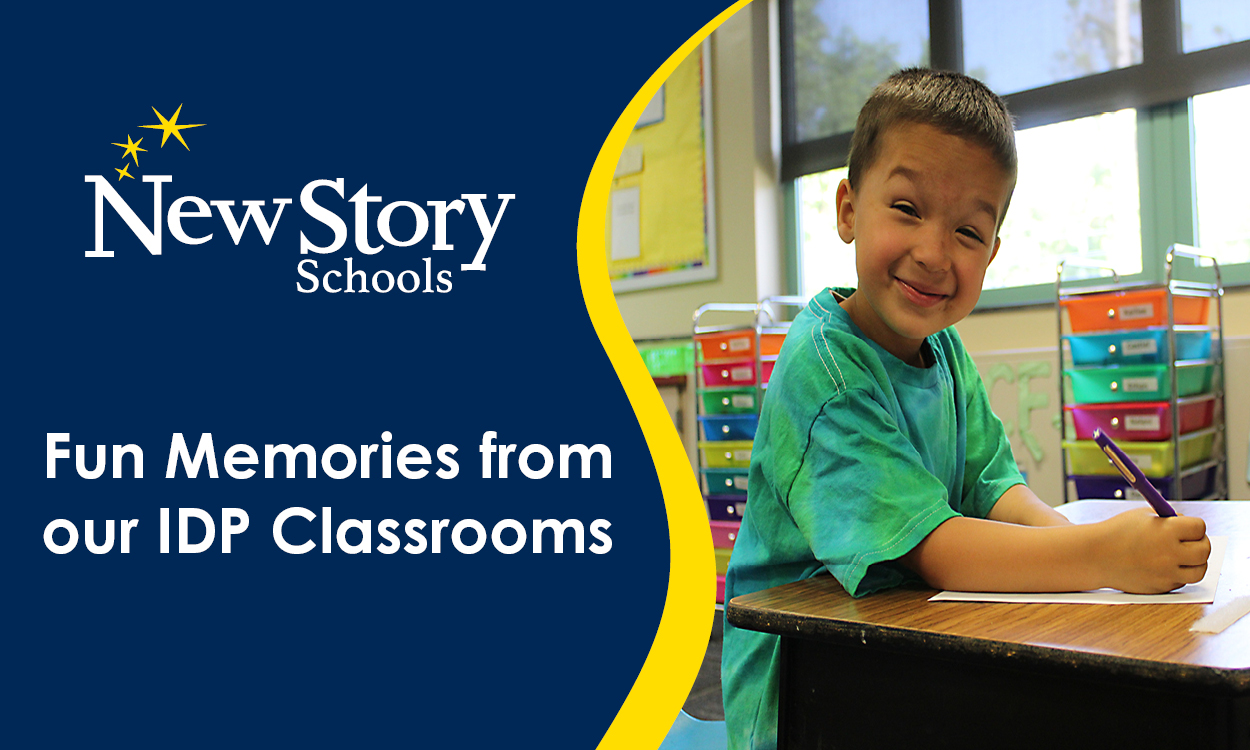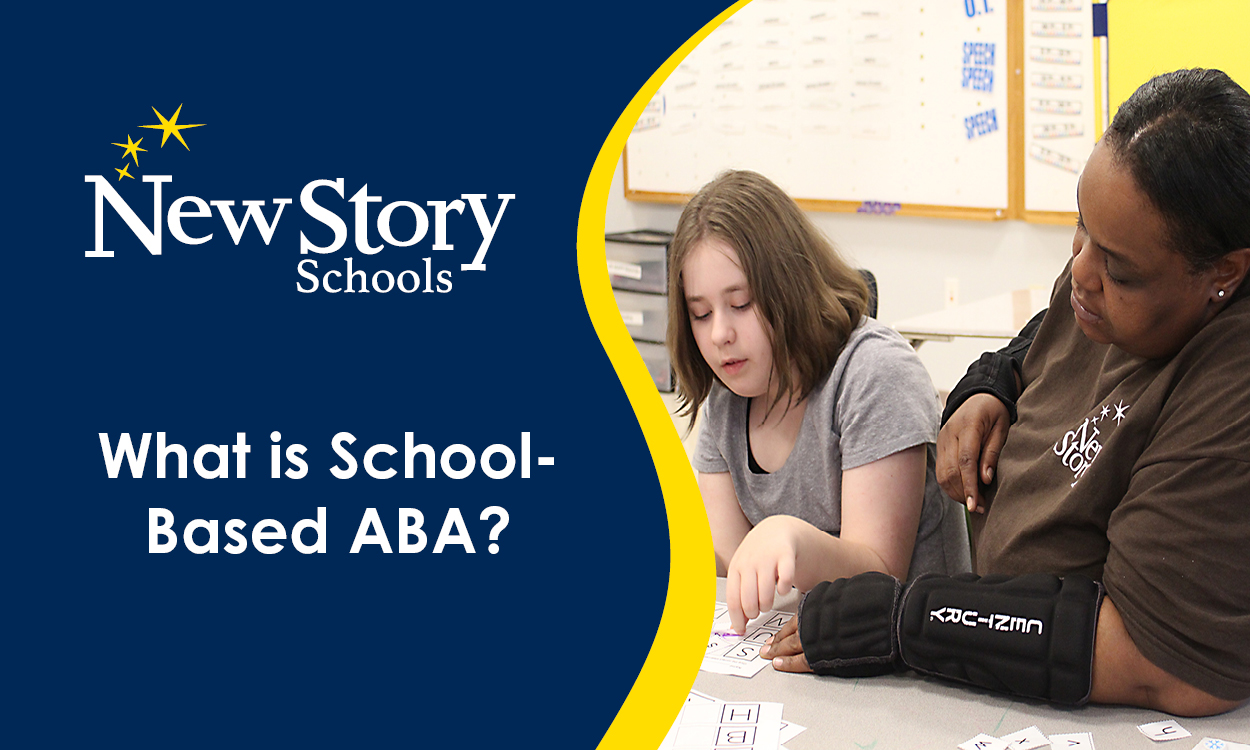Preparing Your Child for a Return to School
Posted: August 16, 2021 | Written By: Becky Compardo | Category: At Home Help

This year, parents are facing a whole new back-to-school to-do list as you prepare your child for a return to school. This includes adapting to new routines, handling awkward and potentially risky social interactions, coping with anxiety and worries for both you and your child, and along with paper and pencils, packing backpacks with hand sanitizer and face masks.
Returning to school doesn’t have to be scary, but you do need to take some time to prepare your child for this process. Summer might have seemed like a break from the pandemic, at times, but the pandemic precautions are still in place. Even in the absence of a pandemic, returning to school can trigger some anxiety in children and the best way to tackle this is to plan, prepare, and be present.
Here are some tips to help returning to school go a little smoother:
- Remember, the more you plan ahead as a family, the more it will alleviate any worries that you or your child have. Talk with your child about how school will look this year (i.e. desks spaced apart from each other, teachers maintaining physical distance, possibility of staying in the classroom for lunch).
- Be aware of your school’s health and safety precautions. Review them and the school’s handbook with your child so that there aren’t any surprises when your child returns to school.
- Will your school be conducting symptoms checks before they enter the building?
- What might this look like?
- Have a family meeting to talk about your child’s worries, fears and excitement about the new year. What are they looking forward to? What are they not looking forward to?
- Children do best when they know what to expect, so establishing normalcy and a routine are very important.
- Have them pick out their clothes the night before to save time and stress in the morning.
- Establish a consistent time for them to go to bed and get up in the morning.
- Teach your child to wash their hands before they leave and when they get home, before and after eating, after using the bathroom, and after sneezing and/or blowing their nose. These are habits that can and should continue at school.
- If you have high-risk family members at home, explain what that means for your child and the extra precautions that might occur that are different than what their friends are doing.
- If your school requires masks to be worn, practice wearing a mask at home. Most children can successfully use masks with practice and positive reinforcement.
- Have a plan for when your child has symptoms that require them to stay home from school and review this plan with your child. It is important for your child to know that just because they have symptoms, it does not mean they have COVID. It does mean that they have to stay home and rest so that they do not spread illness to their friends at school.
- Talk with your child about who they should go to at school, should they be faced with a situation that they are not sure how to handle. During this pandemic, we have had a lot of things to learn and have had to change the way we do certain things. This process will continue even post-COVID. In order to best prepare your child for these situations, they should know who they can go to for support when you are not available. (i.e. the teacher, school counselor, the nurse).
- When your child comes home from school, encourage them to get outside. Getting outside is great for mental and physical health. Encourage physical activity for your child whenever you can, this could be in the form of going for a walk as a family, bike riding, etc.
As the school year progresses, continue to talk to your child about how their school year is going. What are they enjoying? What are they learning? What worries them? Do they have questions about things that might have changed within the school environment? This will help you to be aware of how your child is doing at school and will put your child on the path to having a successful school year!
Want to be notified of new articles and resources from New Story Schools? Submit your email and opt into our newsletter!









